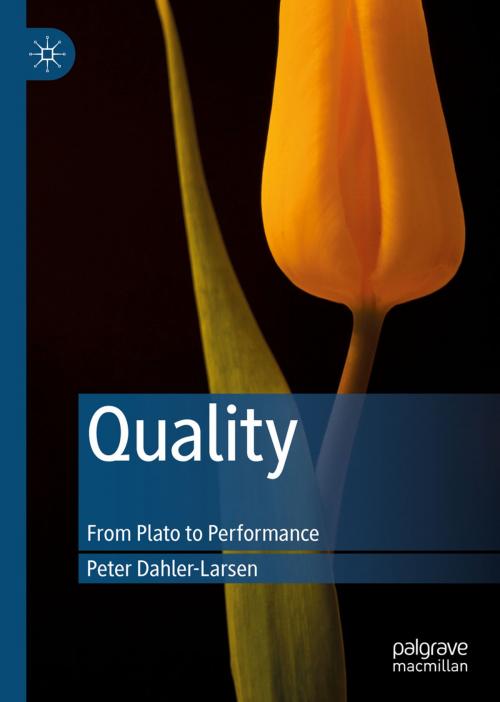Quality
From Plato to Performance
Business & Finance, Economics, Public Finance, Nonfiction, Social & Cultural Studies, Social Science, Sociology| Author: | Peter Dahler-Larsen | ISBN: | 9783030103927 |
| Publisher: | Springer International Publishing | Publication: | February 7, 2019 |
| Imprint: | Palgrave Macmillan | Language: | English |
| Author: | Peter Dahler-Larsen |
| ISBN: | 9783030103927 |
| Publisher: | Springer International Publishing |
| Publication: | February 7, 2019 |
| Imprint: | Palgrave Macmillan |
| Language: | English |
The notion of quality features prominently in contemporary discourse. Numerous ratings, rankings, metrics, auditing, accreditation, benchmarking, smileys, reviews, and international comparisons are all used regularly to capture quality.
This book paves the way in exploring the socio-political implications of evaluative statements, with a specific focus on the contribution of the concept of quality to these processes. Drawing on perspectives from the history of ideas, sociology, political science and public management, Dahler-Larsen asks what is the role of quality, and more specifically quality inscriptions, such as measurement? What do they accomplish? And finally, as a consequence of all this, does the term quality make it possible to deal with public issues in a way that lives up to democratic standards?
This cross-disciplinary book will be of interest to scholars and students across various fields, including sociology, social epistemology, political science, public policy, and evaluation.
The notion of quality features prominently in contemporary discourse. Numerous ratings, rankings, metrics, auditing, accreditation, benchmarking, smileys, reviews, and international comparisons are all used regularly to capture quality.
This book paves the way in exploring the socio-political implications of evaluative statements, with a specific focus on the contribution of the concept of quality to these processes. Drawing on perspectives from the history of ideas, sociology, political science and public management, Dahler-Larsen asks what is the role of quality, and more specifically quality inscriptions, such as measurement? What do they accomplish? And finally, as a consequence of all this, does the term quality make it possible to deal with public issues in a way that lives up to democratic standards?
This cross-disciplinary book will be of interest to scholars and students across various fields, including sociology, social epistemology, political science, public policy, and evaluation.















